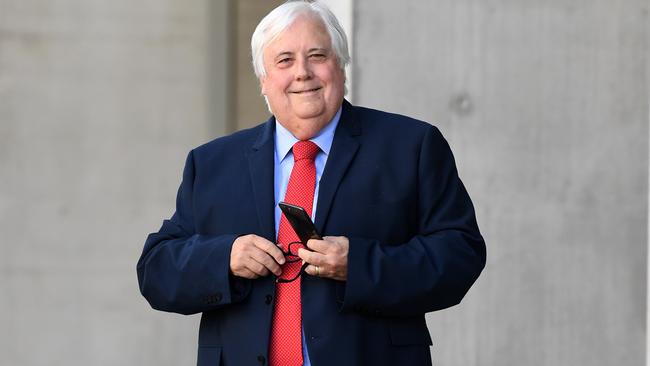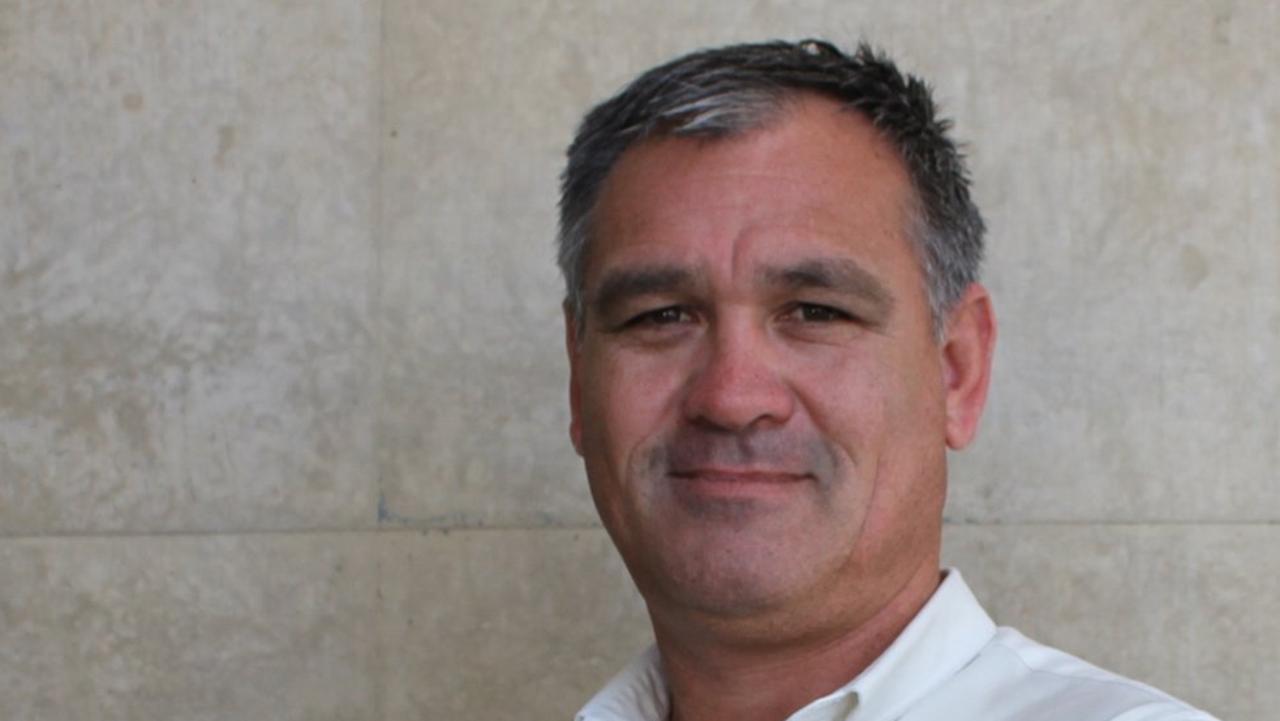Clive Palmer’s $230m pre-emptive strike
As Queensland Nickel faced collapse, Clive Palmer scrambled to have it buy a ‘worthless’ $230m stake in two of his businesses.

As Queensland Nickel faced imminent collapse, losing $5 million a month, Clive Palmer scrambled to have the company purchase a “worthless” $235m stake in two of his mining businesses, a court has been told.
The “extraordinary” transactions ensured they topped the creditor list in the event the Townsville nickel refinery went into administration, which it did five days later on January 18, 2016, it has been alleged.
The self-represented mining magnate did not front court on Wednesday, on the second day of a nine-week Queensland Supreme Court trial, having told judge Debra Mullins he would come and go through the proceedings.
Liquidators seeking to recoup $300m for creditors alleged on Wednesday that Mr Palmer was aware of the company’s perilous financial position at least six months before he authorised the purchase of $135m in China First shares and $100m for two mining tenements held by Waratah Coal.
Barrister Graham Gibson, representing the general purpose liquidators, said creditors Glencore and Aurizon had become increasingly strident about repayment of debts in the weeks before Mr Palmer made the transactions.
He said Aurizon’s threat to end a transport agreement carrying ore and refined nickel and cobalt to and from the refinery was “fatal” to QNI and prompted Mr Palmer to authorise a series of “extraordinary transactions” to purchase the China First shares and Waratah Coal tenements on January 13, 2016.
Mr Palmer, QNI director Clive Mensink and QNI chief financial officer Daren Wolfe met that day with administrators, who they appointed the following week.
“The question arises as to why a company which we contend was insolvent, but even if it wasn’t insolvent was in such an extraordinarily parlous financial position, would pay $135m, or indeed one might say anything, for the privilege of acquiring shares, even such a handsome number as two billion, in a company which immediately before this transaction had a paid-up capital of $2,” Mr Gibson said. “There was no prospect of being able to pay this money and there was almost an inevitability that, within days, administrators would be appointed.
“There was no commercial benefit to QNI in contracting the shares of this amount or any other amount in China First and the coal project was worthless.”
Barrister Shane Doyle, on behalf of the commonwealth-appointed special purpose liquidator, alleged Mr Palmer misused company funds by making various payments with QNI money, including about $8m to his Bulgarian father-in-law, Alexander Sokolov, and $1m to Kyrgyzstani woman Evgenia Bednova.
Mr Doyle said an internal cashflow report in mid-2015 showed “a realisation within QNI that its position was not sustainable”. “If that impending insolvency case was made out, the obligation of the directors was not to act only in the interest of the shareholders or Mr Palmer’s directions but in the interest of creditors,” Mr Doyle said.
The liquidators claim Mr Palmer acted as a shadow director of QNI, while he says his control was exerted as chairman of the joint venture owners committee.
The liquidators claim QNI was trading insolvent from at least October 9, 2015, incurring debts of more than $13m.
“Both (Mr Palmer and Mr Mensink) caused the company to continue to trade and incur those debts while insolvent, and creditors suffered a loss because of that,” Mr Doyle said.



